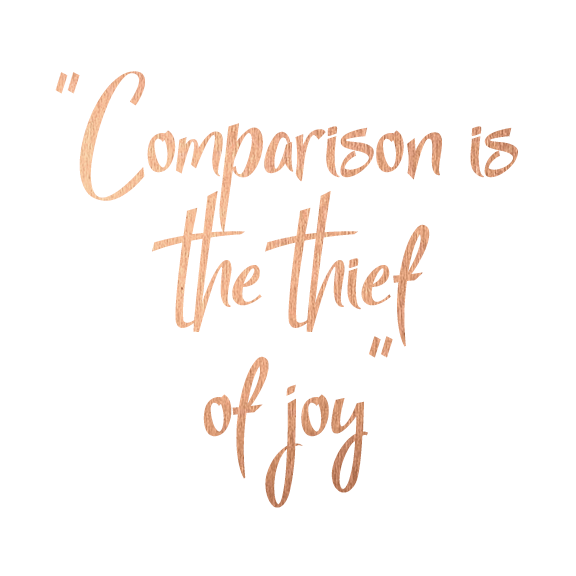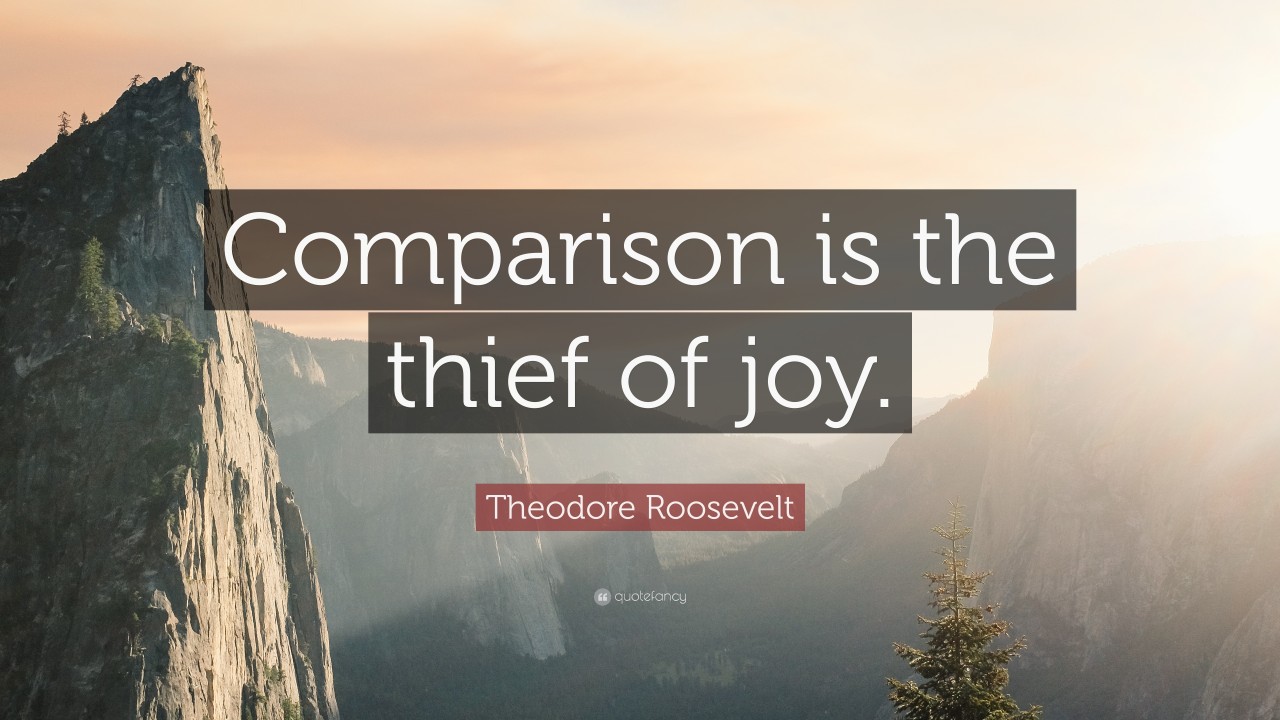Why Comparison Is the Thief of Joy—and How to Reclaim Your Happiness
Introduction: comparison is the thief of joy
comparison is the thief of joy Isn’t it funny how, in the age of social media, we’re constantly peeking into each other’s lives and comparing ourselves with everyone else? We scroll through perfectly curated images, read about career achievements, or see those fitness goals in full swing—and a tiny voice inside us wonders, “Why not me?” Theodore Roosevelt once said, “Comparison is the thief of joy,” and yet it’s more relevant today than ever before. This article dives deep into why comparison steals our happiness, the psychological effects it has on us, and how we can break free from this cycle to embrace a more joyful, fulfilling life.
Why We Compare Ourselves to Others
The Evolutionary Roots of Comparison
From a psychological standpoint, comparison is deeply rooted in our survival instincts. In the ancient days, comparing ourselves to others had a clear survival benefit—it helped individuals assess their strengths and weaknesses in a group dynamic. If someone was better at hunting or finding food, it meant they were more likely to survive, and so others naturally looked up to them. The drive to compare oneself allowed people to find role models and learn new skills.
Fast-forward to modern times, and while survival may not hinge on our ability to hunt or gather, comparison still plays a role. The problem is that this once-valuable survival mechanism has turned into a constant loop of self-criticism and dissatisfaction, especially when fed by social media, advertising, and a society that prizes success and material wealth. The way comparison is embedded in us is no longer useful—it’s harmful.
Social Media: The Amplifier of Comparison
Social media has transformed how we comparison is the thief of joy engage with the world. Platforms like Instagram, Facebook, and Twitter have created an online environment where everyone showcases the “highlight reels” of their lives. Whether it’s a dream vacation, a career promotion, or even a flawlessly plated meal, we see only the best of others. And it’s easy to fall into the trap of thinking that what we see represents their everyday reality.
The thing is, we tend to forget that social media is just that—a “social” platform, meant to share curated content. The struggle, the bad days, and the hardships rarely make it into these feeds. When we start comparing our whole lives, complete with ups and downs, to someone else’s “highlights,” it’s no surprise that we end up feeling like we’re coming up short.
The Psychological Impact of Constant Comparison
When we compare ourselves to others, especially in a way that negatively impacts our self-esteem, we enter into a state psychologists call “downward comparison.” This term refers to focusing on what we lack about others, which often leads to feelings of inadequacy, jealousy, and even depression. While upward comparison (aspiring to improve based on comparison is the thief of joy observing others) can be healthy, it’s easy to let this desire slide into a toxic mindset that diminishes our achievements and worth.
The Effects of Comparison on Mental Health
Self-Esteem and Self-Worth
One of the biggest casualties of chronic comparison is our self-esteem. When we constantly see others seemingly succeeding in areas where we may be struggling, it’s easy to develop feelings of inferiority. This erosion of self-worth can become a vicious cycle, where every perceived success of others seems to amplify our insecurities. This relentless self-critique can lead to severe emotional consequences, often impacting our relationships, productivity, and overall mental health.
Anxiety and Depression
The comparison doesn’t just stop at harming our self-esteem; it can also lead to significant mental health issues such as anxiety and depression. Studies comparison is the thief of joy have shown that individuals who frequently compare themselves to others are more likely to experience these issues. Anxiety stems from the pressure to “catch up” or “keep up” with others, while depression is often rooted in the despair that comes from feeling inadequate. Over time, this combination can create a pattern of emotional distress, leading us to feel isolated or disconnected from others.
Physical Health Consequences

Interestingly, chronic stress caused by constant comparison can even impact our physical health. When we stress over perceived inadequacies, our bodies respond with a “fight or flight” reaction, releasing stress hormones like cortisol. Over time, elevated levels of cortisol can lead to conditions like high blood pressure, weakened immune systems, and comparison is the thief of joy even heart disease. So, it’s clear that comparison doesn’t just affect our minds—it can impact our bodies too.
Why Achievements Don’t Always Equate to Happiness
The Pursuit of External Validation
In a world where success and social status comparison is the thief of joy are often measured by material achievements, it’s tempting to believe that we need to keep up with others to find happiness. Many people equate wealth, fame, or career success with joy, but when we’re constantly chasing someone else’s definition of success, we’re not necessarily pursuing what would truly bring us fulfillment. This reliance on external validation can create a “hedonic treadmill” where, no matter what we achieve, it’s never enough.
The Impact of Society’s Standards on Personal Happiness
Society places high value on things like comparison is the thief of joy wealth, status, and appearance, shaping our understanding of success from a young age. When society’s standards clash with our values or interests, it creates an internal conflict that can leave us feeling dissatisfied, even when we meet societal expectations. Happiness comes not from external achievements but from aligning with what truly matters to us.
The “Arrival Fallacy” and Why Goals Alone Aren’t Fulfilling
The arrival fallacy is the idea that once we achieve a certain goal, we will be truly happy. However, research shows that happiness derived from achieving a goal is often short-lived. Once the initial excitement fades, we quickly set new goals, thinking, “When I reach this next milestone, then I’ll be happy.” This never-ending chase leads to a comparison is the thief of joy sense of emptiness and dissatisfaction, especially when it’s driven by comparing our progress to others.
How to Break Free from the Comparison Trap
Focusing on Your Journey
One of the most effective ways to escape the comparison cycle is to focus on your journey. It can help to recognize that life is not a competition and that each person’s path is unique. When we focus on our growth and celebrate our achievements, no comparison is the thief of joy matter how small, we become more centered and less inclined to compare ourselves to others. Journaling, reflecting on personal achievements, and setting individual goals can be helpful tools in this process.
Practicing Gratitude
Gratitude is a powerful antidote to comparison. When we consciously focus on what we already have, we’re less likely to feel lacking or envious of comparison is the thief of joy others. Practicing gratitude shifts our perspective from what we don’t have to what we do have. Studies have shown that individuals who practice gratitude experience greater levels of happiness and satisfaction in their lives. A daily gratitude practice, where you list a few things you’re grateful for, can cultivate a mindset of contentment.
Limiting Social Media Consumption
Given that social media plays a significant role in amplifying comparison, setting boundaries around its use can be a powerful way to reduce its comparison is the thief of joy impact. This might mean unfollowing accounts that trigger negative feelings, taking regular breaks, or limiting screen time. Being mindful of how we engage with social media can help us use it in a way that enriches rather than detracts from our well-being.
Embracing Self-Acceptance and Authenticity
The Importance of Self-Acceptance
Self-acceptance is the foundation for a fulfilling, joyful life. When we accept ourselves—flaws, strengths, and all—we are less inclined to compare comparison is the thief of joy ourselves with others. Practicing self-compassion allows us to see our worth independent of external achievements or comparisons. Learning to love oneself is a journey, but it is one worth taking for the peace and confidence it brings.
Authenticity Over Perfection
Striving for perfection often stems from comparison, but pursuing authenticity over perfection allows us to embrace who we truly are. Authenticity is about being true to oneself, regardless of external pressures or comparisons. When we live authentically, we’re not trying to measure up to others but instead are living in alignment with our values comparison is the thief of joy and beliefs. This shift can bring a deep sense of peace and fulfillment, even in the face of life’s challenges.
Finding Joy in Progress, Not Perfection
Lastly, learning to find joy in progress rather than perfection can help combat the thief of joy. Growth is a gradual process, and each step forward is worth celebrating. When we shift our focus from achieving the “perfect” life to embracing growth and improvement, we feel a greater sense of joy and satisfaction. This approach allows us to view life as a journey of self-discovery, not a race to a finish line.
Conclusion: Choosing Joy Over Comparison
Comparison may be a natural human instinct, but it doesn’t have to control us. By understanding its origins, recognizing its impact, and practicing strategies to combat it, we can free ourselves from its grip. Instead of looking outward for validation and happiness, let’s look inward to cultivate joy, gratitude, and self-acceptance. Each comparison is the thief of joy person’s journey is unique, and joy lies not in achieving more than others but in embracing our path. Choose joy, focus on your growth, and remember that true happiness is an inside job.







Post Comment